Storage and Networking
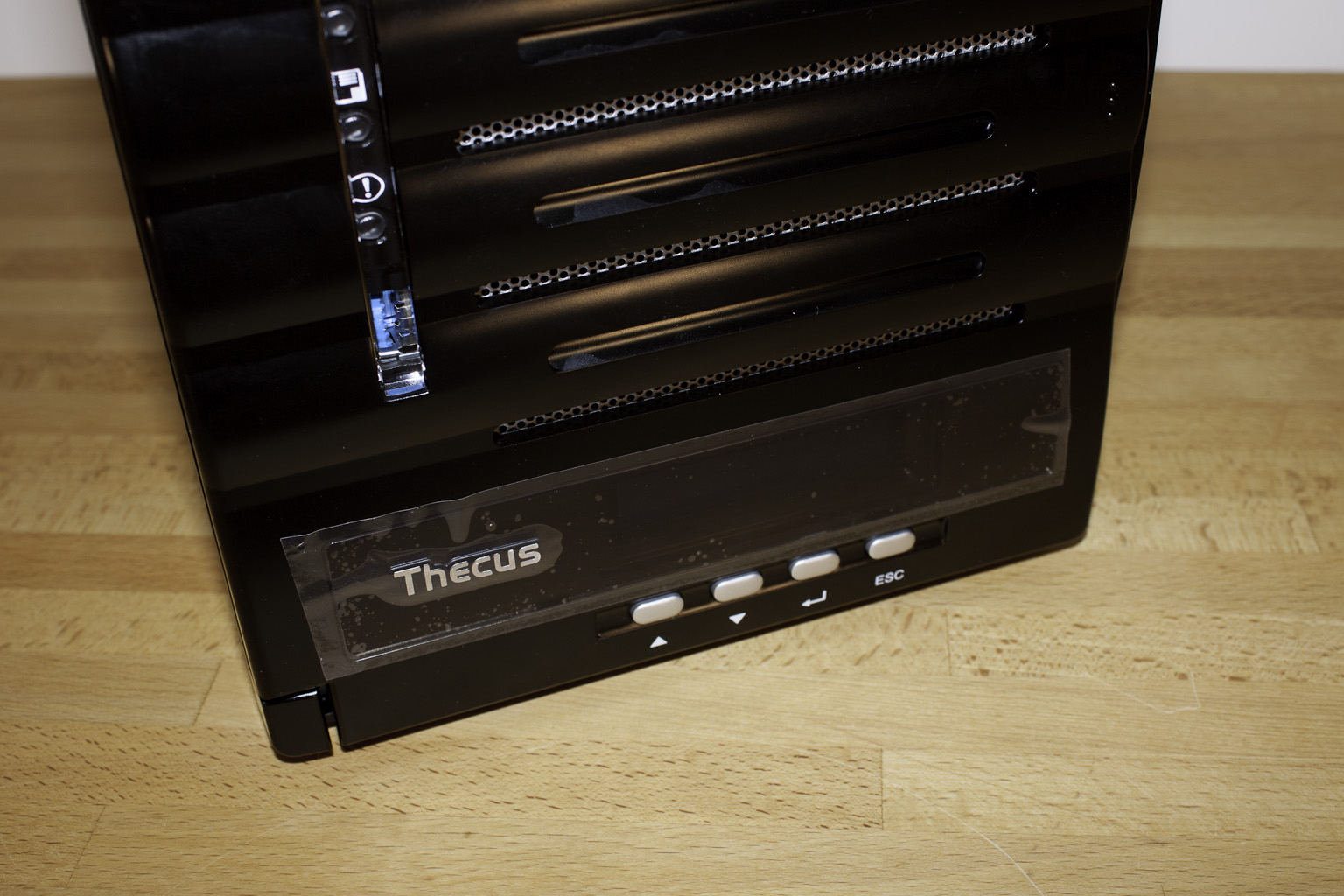 |
With the big push for everything in the cloud we have been focusing on ways to consumers and businesses to bring their data back into their own control. One of the least expensive methods for this is through the use of a NAS (Network Attached Storage) device. These are devices that have a minimum of two drive bays and allow for you to set up RAID (Redundant Array of Inexpensive Disks) Volume for performance and/or redundancy. Today in the Lab we have a five-bay NAS device from Thecus. This is an Atom based system with support for up to 15TB of RAW space and 3GB of memory. So let’s take a look at the Thecus N5550 and see what this $600 (empty) NAS has to offer as we dig deep into its design, build and features.
- Details
- By Sean Kalinich
- Hits: 43063
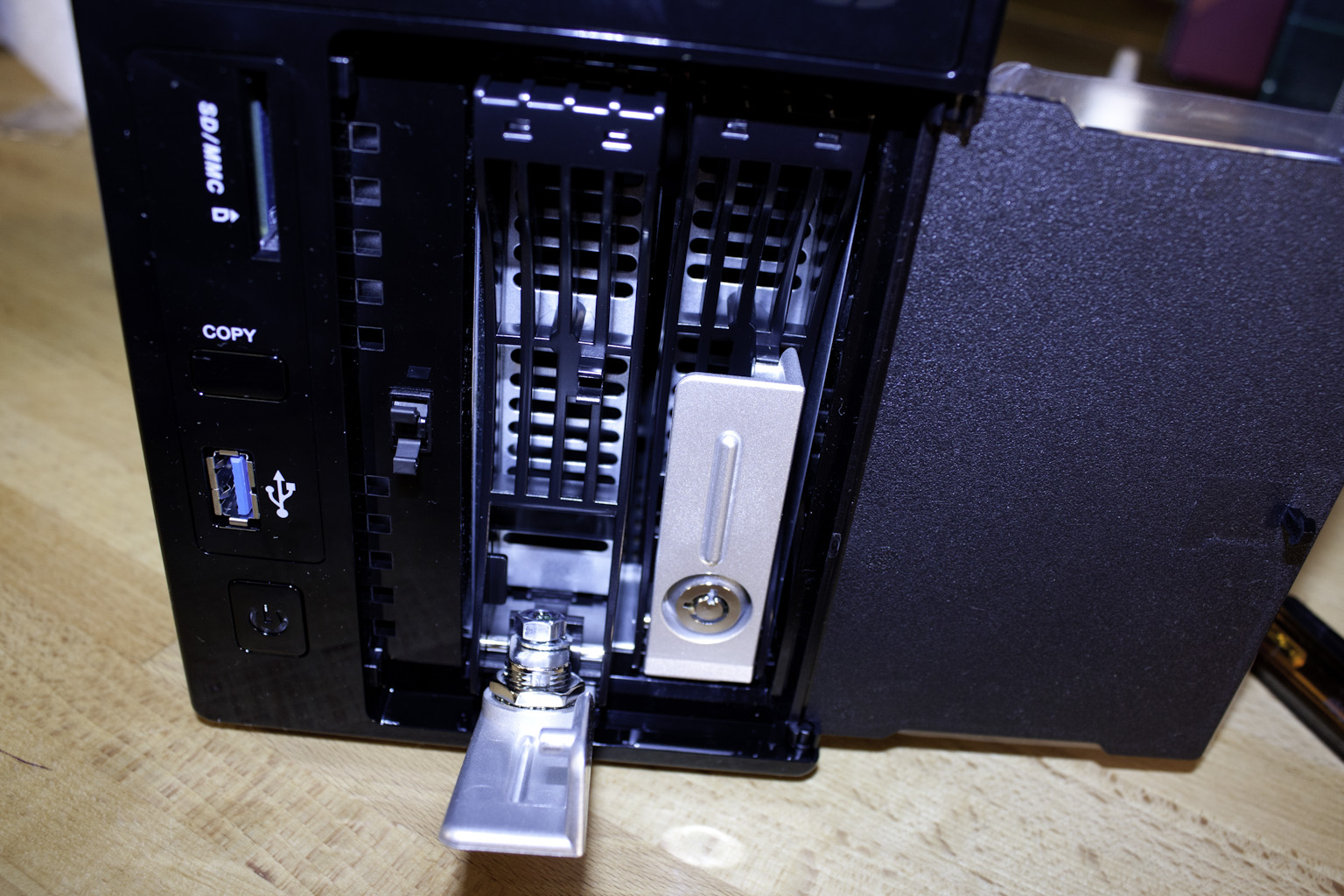 We have another network storage device in our labs; the Thecus N2800. This is a 2-bay NAS with dual network controllers, USB 3.0, USB 2.0, and eSATA connectivity. We have tinkered around with some of Thecus’ products before and found that they usually are looking at getting you solid performance, but you are not going to get a ton of frills with them. This is not to say they do not have their own feature set that is worth talking about, but that in the past we have found them to be very straight forward products. Good performance, good price and they will do what you need them to. We have been told that this has changed at Theucus and they are moving in the direction of adding in a wider feature set with their NAS Products. So let’s take a look and see if there has been any improvement.
We have another network storage device in our labs; the Thecus N2800. This is a 2-bay NAS with dual network controllers, USB 3.0, USB 2.0, and eSATA connectivity. We have tinkered around with some of Thecus’ products before and found that they usually are looking at getting you solid performance, but you are not going to get a ton of frills with them. This is not to say they do not have their own feature set that is worth talking about, but that in the past we have found them to be very straight forward products. Good performance, good price and they will do what you need them to. We have been told that this has changed at Theucus and they are moving in the direction of adding in a wider feature set with their NAS Products. So let’s take a look and see if there has been any improvement.
- Details
- By Sean Kalinich
- Hits: 27766
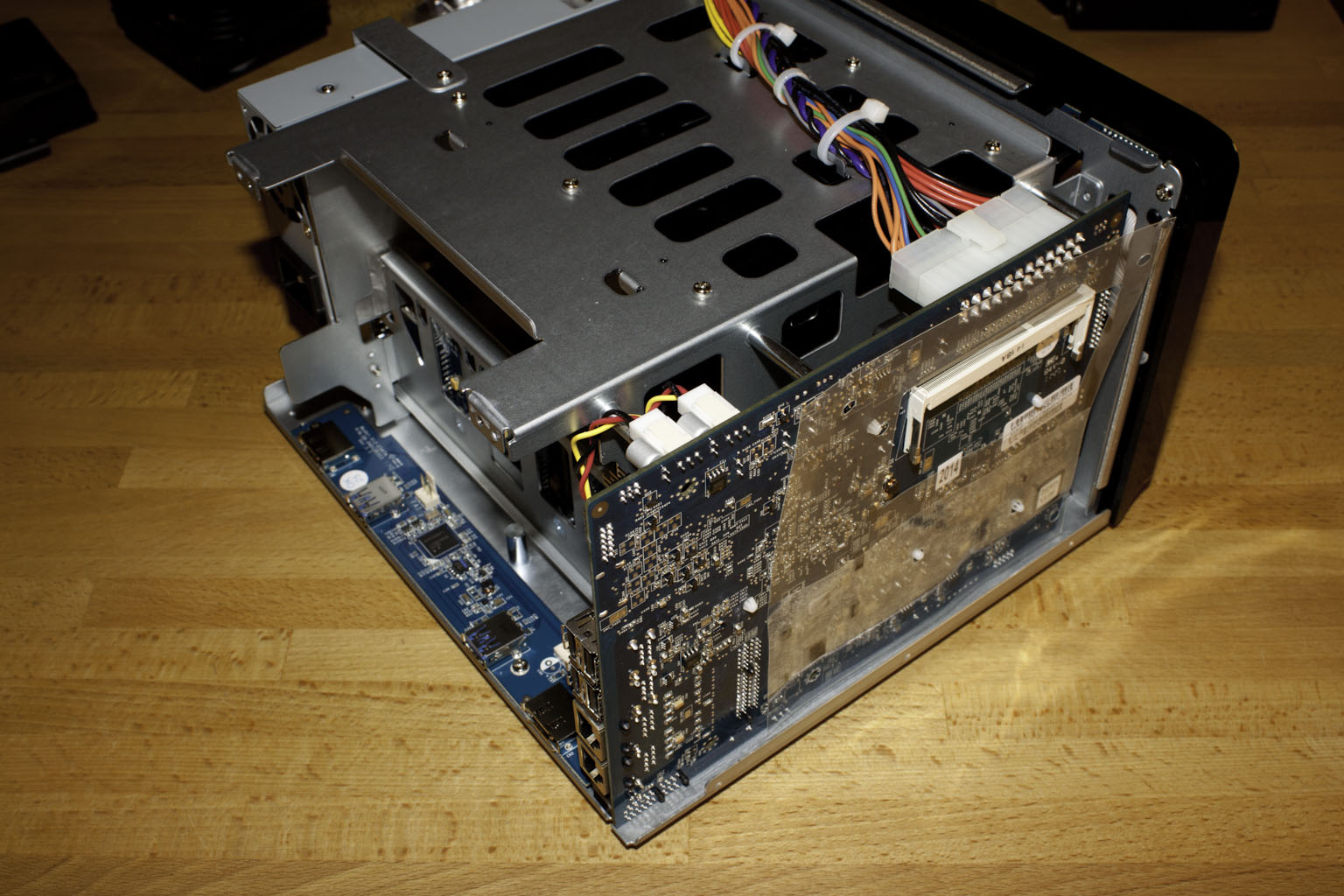 As the push for cloud based storage and services becomes greater we have been taking a look at the value of these from not only a monetary view, but also from a privacy and security view. To this end we have been tinkering around with a few Network Attached Storage Devices (NAS). One of our first is the Synology DiskStation DS1512+. We have already dissembled the DS1512+ in the first part of our coverage and now have pounded on it for a good length of time to see how it performs using a few synthetic tests as well as real-world usage. So let’s take a look at our results.
As the push for cloud based storage and services becomes greater we have been taking a look at the value of these from not only a monetary view, but also from a privacy and security view. To this end we have been tinkering around with a few Network Attached Storage Devices (NAS). One of our first is the Synology DiskStation DS1512+. We have already dissembled the DS1512+ in the first part of our coverage and now have pounded on it for a good length of time to see how it performs using a few synthetic tests as well as real-world usage. So let’s take a look at our results.
- Details
- By Sean Kalinich
- Hits: 85147
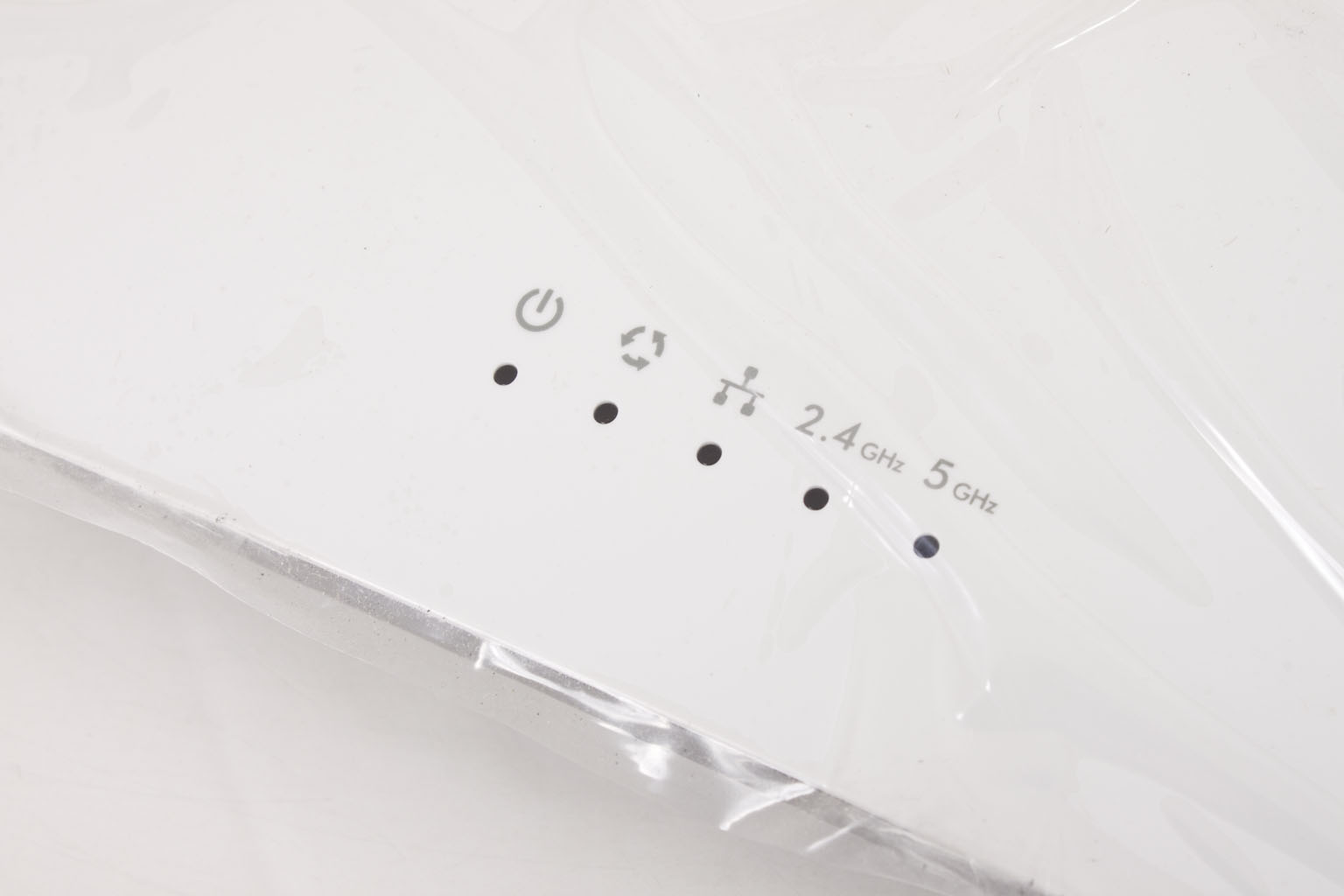 In my time in IT I have worked with a number of wireless devices for the consumer and for businesses. These have ranged everywhere from simple $40 products that are only meant to get you online (not fast, but online) to multi-component wireless systems costing thousands of dollars. All of these still use the same basic technology to get you connected and to pass traffic between your device and the internet. At their heart is going to be a wireless radio, but this does not mean that all wireless products are the same; quite the opposite in fact. There is a clear line between wireless for the average home and wireless for the average business. The factors are mostly in the software used and the features that you have at your disposal, but you also will often have more advanced hardware under the hood as well. Today we will be taking a look at standalone wireless access point that is aimed at the business market (although there are many things that consumers will like about as well). This is the NETGEAR WNDAP360 ProSafe Dual Band Wireless Access Point; let’s see if worth the $290 it will cost to put one of these in your office.
In my time in IT I have worked with a number of wireless devices for the consumer and for businesses. These have ranged everywhere from simple $40 products that are only meant to get you online (not fast, but online) to multi-component wireless systems costing thousands of dollars. All of these still use the same basic technology to get you connected and to pass traffic between your device and the internet. At their heart is going to be a wireless radio, but this does not mean that all wireless products are the same; quite the opposite in fact. There is a clear line between wireless for the average home and wireless for the average business. The factors are mostly in the software used and the features that you have at your disposal, but you also will often have more advanced hardware under the hood as well. Today we will be taking a look at standalone wireless access point that is aimed at the business market (although there are many things that consumers will like about as well). This is the NETGEAR WNDAP360 ProSafe Dual Band Wireless Access Point; let’s see if worth the $290 it will cost to put one of these in your office.
- Details
- By Sean Kalinich
- Hits: 90310
Read more: We take a look at the NETGEAR ProSafe WNDAP360...
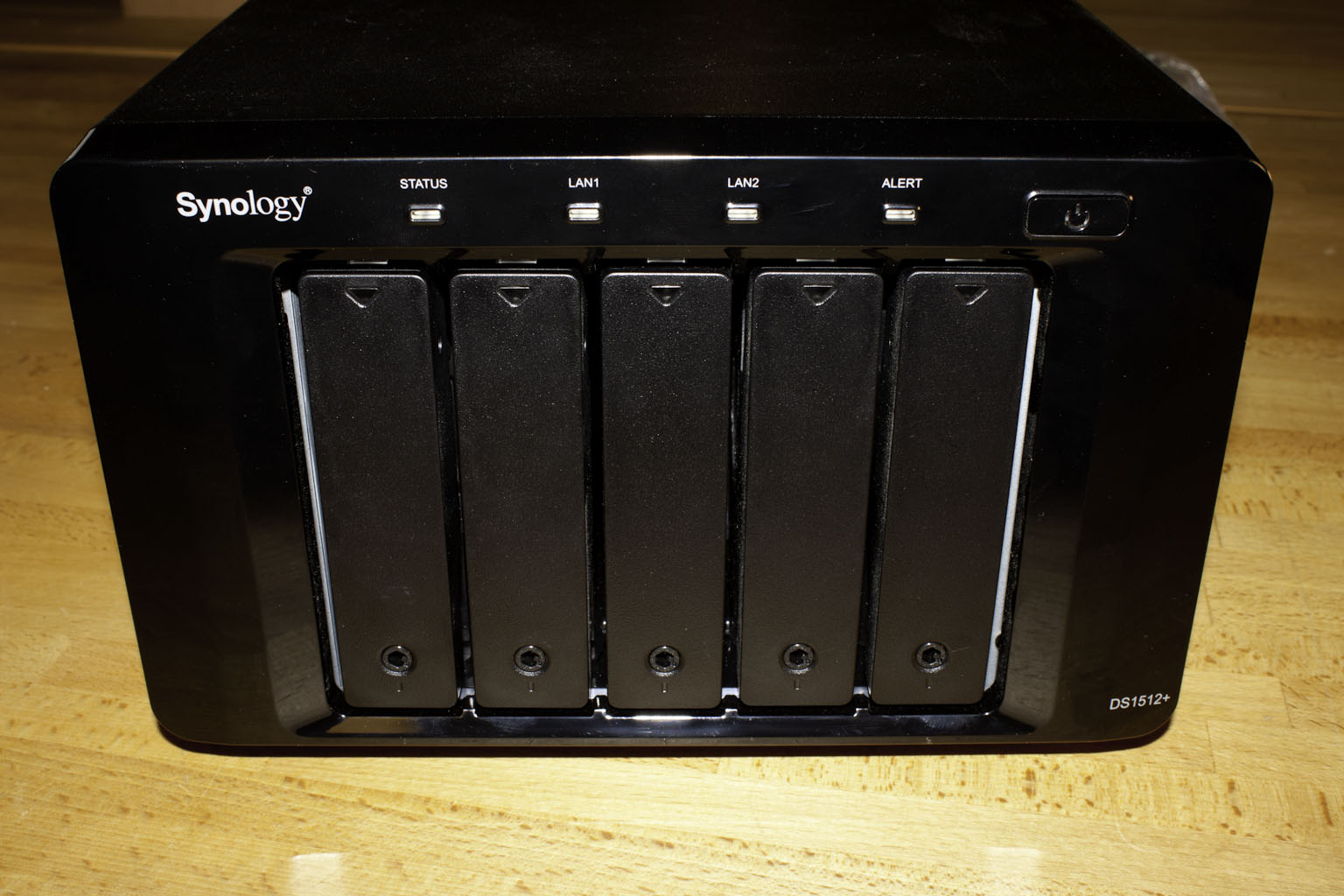 When I first got into the IT game the storage needs of even large companies could be maintained in less space than what typically fits on a CD-ROM. In fact all of the applications that we used in the shop fit onto 20 3.25-inch 720KB floppy disks! Now you would be hard pressed to store one or two Word documents on even one of those floppies. Fortunately as our storage requirements have grown so have the devices we keep all that data on. For most home users simply dropping in a 1 or 2 Terabyte hard drive will be enough, but for businesses, prosumers and enthusiasts might need a bit more. For this there are products that can be attached to a normal home or office network that offer extra storage (and many other functions) to meet these needs. Synology is a maker of NAS (Network Attached Storage) devices. The idea of the NAS is not new, nor is it a business only product. There have been multiple consumer level NAS devices. The one we have in from Synology is a little outside the normal home environment. This is the Disk Station 1512+ it is a 5-Bay, Dual-Lan, Network Storage device that has some great hardware and software features in store of anyone picking this product up. We will be taking a look at the hardware used inside, the build and some of the basic features in this part of our coverage. So let’s get started.
When I first got into the IT game the storage needs of even large companies could be maintained in less space than what typically fits on a CD-ROM. In fact all of the applications that we used in the shop fit onto 20 3.25-inch 720KB floppy disks! Now you would be hard pressed to store one or two Word documents on even one of those floppies. Fortunately as our storage requirements have grown so have the devices we keep all that data on. For most home users simply dropping in a 1 or 2 Terabyte hard drive will be enough, but for businesses, prosumers and enthusiasts might need a bit more. For this there are products that can be attached to a normal home or office network that offer extra storage (and many other functions) to meet these needs. Synology is a maker of NAS (Network Attached Storage) devices. The idea of the NAS is not new, nor is it a business only product. There have been multiple consumer level NAS devices. The one we have in from Synology is a little outside the normal home environment. This is the Disk Station 1512+ it is a 5-Bay, Dual-Lan, Network Storage device that has some great hardware and software features in store of anyone picking this product up. We will be taking a look at the hardware used inside, the build and some of the basic features in this part of our coverage. So let’s get started.
You can check out the performance half of this review here
- Details
- By Sean Kalinich
- Hits: 32634
Page 2 of 2



